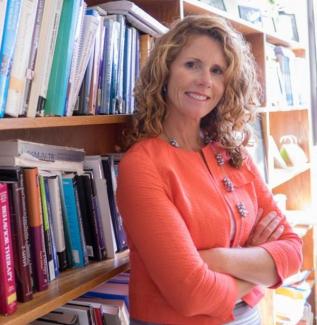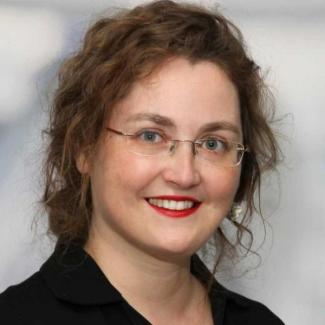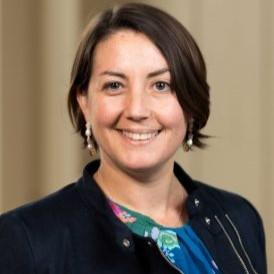Keynote Speaker |
|

|
Dr. Elizabeth Hampson, Western University Dr. Elizabeth Hampson is a professor in the Department of Psychology at Western University, a member of Western's Graduate Program in Neuroscience, and a member of the Brain and Mind Institute. She holds a cross-appointment in the Department of Psychiatry at the Schulich School of Medicine. Her work on reproductive hormones in the human nervous system and their implications for cognitive function, memory, aging, and mood has been internationally recognized for more than two decades. Dr. Hampson has received the Curt P. Richter Prize for advances in neuroendocrinology, and has been supported by a Chair in Women's Health from the Canadian Institutes of Health Research. She serves on the editorial boards of a number of peer-reviewed scientific journals, and is a member of the advisory board of the Society for Behavioral Neuroendocrinology. As an invited member of a Washington-based expert panel, the Isis Fund Network on "Sex, Gender, Drugs and the Brain", and as an independent researcher, Dr. Hampson's work has helped to highlight the importance of sex as a biological variable in medical research. She is also a founding member of the Organization for the Study of Sex Differences. |
Symposia & Workshop Speakers |
|

|
Dr. Sarah E Hill, Texas Christian University Dr. Sarah E. Hill earned her PhD from the University of Texas and she is currently a researcher and professor at Texas Christian University. Her research on women, health, and sexual psychology has been published in more than 70 journal articles and is regularly featured in news outlets like the New York Times, The Economist, The Washington Post, and Today. Most recently, Dr. Hill has authored “This is your brain on birth control: the surprising science of women, hormones, and the law of unintended consequences” and you can see her featured in Netflix’s Principles of Pleasure. Twitter: @sarahehillphd |

|
Dr. Nafissa Ismail, University of Ottawa Dr. Nafissa Ismail is a Full Professor at the School of Psychology at the University of Ottawa and the holder of a University Research Chair in Stress and Mental Health. She obtained her PhD from Concordia University in 2009. She then completed a post-doctoral fellowship at the University of Massachusetts and joined the University of Ottawa in 2012. Her research expertise is in Neuroimmunology and Neuroendocrinology. She was awarded Young Researcher of Year by the University of Ottawa in 2017, the Early Researcher Award by the province of Ontario in 2018, and was also awarded the prize for activity in the media and in the community 2021 by the Faculty of Social Sciences. She is also a member of the Global Young Academy and she has been elected to the College of New Scholars, Artists and Scientists of the Royal Society of Canada as of this year. Twitter: @ismail_nafissa |

|
Dr. Michael Lipton Dr. Michael Lipton, a neuroradiologist and neuroscientist, is Professor in the Gruss Magnetic Resonance Research Center, Department of Radiology at Albert Einstein College of Medicine as well as Medical Director of MRI Services at its University Hospital, Montefiore Medical Center, both in New York. He divides his professional time between the clinical practice of neuroradiology, teaching and research. Dr. Lipton’s translational research broadly seeks to characterize brain mechanisms linking environmental exposures to brain dysfunction and to understand how these relationships are modified by individual characteristics, such as sex and genes. His research program currently applies MRI to characterize brain microstructure and function in the contexts of repeated head impacts in sports as well as SARS-CoV-2 infection and aging. Dr. Lipton’s work on the impact of “heading” on brain structure and function in amateur soccer players, funded by the Dana Foundation and the National Institutes of Health, has received extensive worldwide scientific and lay-press attention. |

|
Dr. Bronwyn Graham, University of New South Wales Associate Professor Bronwyn Graham is a Behavioural Neuroscientist and Clinical Psychologist who conducts bench to bedside translational clinical research, where basic processes are investigated in non-human animals, and then applied to clinical populations. Dr. Graham's research focuses on how sex hormones influence anxiety disorders, a highly prevalent mental illness which affects twice as many women as men. Her unique approach has led to significant innovations in the understanding of anxiety with direct translational impacts. For example, her research has shown that female-specific variables, like menstrual cycle status, use of the hormonal contraceptive pill, and pregnancy, significantly influence fear extinction, the laboratory basis for anxiety treatments in humans. She has translated these findings to clinical trials in which she has shown that these same factors moderate the success of treatment in humans with anxiety disorders. Dr. Graham has received continuous funding from the Australian Research Council, and was a recipient of the prestigious international MQ Foundation Fellowship. Her findings have been disseminated to health professionals (e.g., Psychiatric Times magazine; CPD seminars), and the community (media coverage, e.g., ABC Lateline). Twitter: @BronwynM_Graham
|

|
Dr. Frances Chen, University of British Columbia Dr. Frances Chen is an Associate Professor in the Department of Psychology at the University of British Columbia. Her research explores the intersection of social psychology and health psychology, linking our social lives (and, increasingly, our online social lives), mental health and physical health. Dr. Chen's research interests include social behaviour, relationships, social support, stress, coping, conflict and negotiation, social neuroscience, neurobiology, neuroendocrinology.
|

|
Dr. Kelly Klump, Michigan State University Dr. Kelly Klump is an MSU Foundation Endowed Professor in the Department of Psychology at Michigan State University (MSU). In 1998, she received her Ph.D. in Clinical Psychology from the University of Minnesota. She completed her pre-doctoral, clinical internship at McLean Hospital, Harvard School of Medicine (1997-1998), and completed a postdoctoral fellowship at Western Psychiatric Institute and Clinic, the University of Pittsburgh, School of Medicine (1998-2000). Her research focuses on genetic and biological risk factors for eating disorders using both human (i.e., twin studies) and animal models. She is particularly interested in developmental changes in genetic and hormonal risk factors and their meaning for the development of eating disorders. Dr. Klump has published over 250 papers and has received a number of federal grants for this work, including 9 major NIMH grants She also has been honored with awards including the David Shakow Award for Early Career Contributions to Clinical Psychology from the American Psychological Association, New Investigator Awards from the World Congress on Psychiatric Genetics and the Eating Disorders Research Society, the MSU Teacher-Scholar Award, the MSU Distinguished Contributions to Honors Students, the Price Foundation Award for Research Excellence from the National Eating Disorders Association, and the Leadership Award in Research from the Academy for Eating Disorders. Dr. Klump is the first faculty member to receive a MSU Foundation Endowed Professorship, and she was the 2007-2008 President of the Academy for Eating Disorders, the largest, international professional organization dedicated to the treatment, research and prevention of eating disorders. |

|
Dr. Sofia Ahmed, University of Calgary Dr. Sofia Ahmed is a Professor in the Department of Medicine, Cumming School of Medicine at the University of Calgary. She is the Vice-Chair of Research for the Department of Medicine at the University of Calgary, a nephrologist and clinician-scientist with a focus on sex differences in human cardiovascular and kidney physiology and outcomes. Dr. Ahmed is an Advisory Board member for the Canadian Institutes of Health Research (CIHR) Institute of Gender and Health, the Education Chair for the Organization for the Study of Sex Differences and is the Sex and Gender Champion of the CIHR-funded Canadians Seeking Solutions and Innovations to Overcome Chronic Kidney Disease (Can-SOLVE CKD), a pan-Canadian patient-oriented kidney research network. She completed her MD and internal medicine residency at the University of Toronto and a nephrology fellowship at Brigham and Women’s and Massachusetts General Hospitals in Boston. She completed her Master’s in Medical Sciences at Harvard University. Dr. Ahmed is a strong proponent of the importance of mentorship and fostering excellence in the next generation of kidney and cardiovascular researchers. Twitter: @SofiaAhmedMD |

|
Dr. Ami Raval, University of Miami Dr. Ami Raval has numerous years of experience in the field of sex hormones and mechanism of cerebral ischemia. Her ongoing research focuses on elucidating the mechanism(s) by which the female sex hormone- estrogen - decreases the risk of cerebral ischemia in females utilizing in vivo and in vitro cerebral ischemia models in rats, and analysis of mitochondrial function. While working to earn her PhD, Dr. Raval studied the effects of endogenous variations of female sex hormones on non-reproductive tissues; this knowledge helped her to design studies to understand the mechanism of ischemic brain protection by estrogen. She is well versed in various in vivo and in vitro models of cerebral ischemia as well as in imaging, electrophysiology, and behavior and molecular biology techniques. She has also succesfully trained and supervised post-doctoral fellows, students, and technicians to perform ischemia models and the aforementioned techniques. Dr. Raval is also part of the University of Miami’s undergraduate neuroscience program, and she is involved in education of premedical and medical students. |

|
Dr. Marie-France Marin, University of Québec, University of Montreal Dr. Marie-France Marin holds a PhD in neuroscience from the University of Montreal and completed postdoctoral training at the Massachusetts General Hospital, Harvard Medical School. She is a professor in the Department of Psychology at the University of Quebec in Montreal, an associate professor in the Department of Psychiatry and Addiction at the University of Montreal, a researcher at the Montreal Mental Health University Institute Research Centre, and a research member of the Réseau intersectoriel de recherche en santé de l’Université du Québec. Her expertise focuses on the impact of stress and stress hormones on the modulation of emotional memories. During her postdoctoral training, she furthered her knowledge of the modulation of memory processes, with a particular focus on fear-related and traumatic memories. In 2016, she founded the Stress, Trauma, Emotions, Anxiety, and Memory Lab (STEAM Lab). She and her team are pursuing two main research axes: one focusing on the mechanisms by which stress and sex hormones influence fear and safety learning and the other focusing on the intergenerational transmission of the risk for psychopathologies in families with a parent suffering from post-traumatic stress disorder. Overall, supported by major funding agencies, her research aims to document the environmental and biological factors that increase one’s vulnerability to develop various stress or fear-related psychopathologies. Recently, she was awarded a Canada Research Chair in hormonal modulation of cognitive and emotional functions. |

|
Dr. Birgit Derntl, University of Tübingen
Dr. Birgit Derntl, trained psychologist and psychotherapist (CBT), full professor for Innovative Neuroimaging, Department for Psychiatry & Psychotherapy, Tübingen Center for Mental Health, University of Tübingen, Germany. Research focus: Social and Affective Psychoneuroendocrinology with a particular focus on Women's Mental Health. Twitter: @Derntllab |

|
Marisa Blake from Native Women's Association of Canada Marisa Blake is a Senior Project Officer on the Health Team at the Native Women’s Association of Canada. She has mixed ancestry, settler and Objiway. Her homeland is Treaty 9 territory and she lives and works on the traditional and unceded territory of the Algonquin People. Her educational background is in nutrition sciences from the University of Guelph and she is also a Registered Nutritionist. She worked in healthcare before joining NWAC in 2019. Since then she has lead two cannabis and health related projects and now is involved in additional community-based health research projects. Twitter: @NWAC_CA |

|
Dr. Robert Paul Juster, Universite de Montreal Dr. Robert-Paul Juster is the Director of the Center on Sex*Gender, Allostasis, and Resilience (CESAR) based at the Research Center of the Montreal Mental Health University Institute. Dr. Juster is an Assistant Research Professor in the Department of Psychiatry and Addiction at the University of Montreal. Dr. Juster also holds a CIHR Sex and Gender Science Chair. His research focuses on stress and resilience using a sex and gender lens. He has dedicated his career to advancing the allostatic load model first developed by the late and great Bruce McEwen. Twitter: @Rob_Paul_Juster |

|
Dr. Adriene Beltz, University of Michigan Dr. Adriene Beltz is an Associate Professor of Psychology at the University of Michigan. She is a quantitative developmentalist who studies sex hormone influences on the brain and gendered behaviors across the lifespan. She specializes in ovarian hormone links to cognition and psychopathology and uses innovative methods to reveal when women are – and are not – well-represented by averages. Dr. Beltz received her PhD in Psychology, specializing in Social, Cognitive, and Affective Neuroscience, from Penn State University, and she completed a post-doctoral position at the same university focused on quantitative methodology before joining the University of Michigan faculty in 2016. Her research is funded by the National Institutes of Health, Jacobs Foundation, and James S. McDonnell Foundation. She has also received awards from the Association for Psychological Science as well as Divisions 5 (Methods) and 6 (Behavioral Neuroscience) of the American Psychological Association. |

|
Jesse Lacasse, Concordia University Jesse Lacasse is a Ph.D. (c) at Concordia University's Center for Studies in Behavioral Neurobiology in Montréal, Quebec. His research focuses on the effects of hormonal contraceptives on the brain and cognition both in women and in female rats. Twitter: @JesseMLacasse |

|
Dr. Natalie Tronson, University of Michigan Dr. Natalie Tronson's research focuses on the molecular mechanisms of learning and memory; the internal and external factors that can lead to changes in memory; and the role of memory dysregulation in psychiatric and neurological disorders including post-traumatic stress disorder, and post-operative cognitive decline. Dr. Tronson is particularly intruigued by questions such as “Why do many patients develop post-traumatic stress disorder after heart attack?” and “What causes cognitive and memory decline after surgery?” and “How do normal memories for trauma become pathological in post-traumatic stress disorder?” and “Why are women so much more susceptible to these than males?” Twitter: @TronsonLab |

|
Dr. Caitlin Taylor, University of California Dr. Caitlin Taylor received her B.S. in Psychology and B.A. in French from Indiana University-Bloomington, and her PhD in Neuroscience from Georgetown University. Caitlin’s graduate work focused on investigating age- and experience-dependent modulation of coherent visual motion processing using functional magnetic resonance imaging (MRI). As a postdoctoral fellow in the Jacobs Lab, Caitlin uses MRI to investigate the effects of oral contraceptive use on the brain, as well to study the effects of sex hormones on the hippocampus. She is the recipient of a 2018 SAGE Junior Fellowship and the 2019 Harvey L. Karp Discovery Award. Outside of the lab, Caitlin is interested in sharing her love of science through science education and outreach. Twitter: @caitaylo |

|
Jennifer Williams Jennifer Williams is a PhD candidate at McMaster University, supervised by Dr. Maureen MacDonald. Her research focuses on the role of endogenous and exogenous sex hormones on peripheral vascular function and structure in premenopausal females, and the underlying mechanisms governing vascular responses. She is also fascinated by the intersecting roles of sex and gender in vascular disease progression. Twitter: @jennyswilliams
|

|
Rachel Gilfarb Rachel Gilfarb is a 5th year PhD Candidate at the Ohio State University in the lab of Dr. Benedetta Leuner. Broadly, she studies how female-biased experiences (like pregnancy, motherhood, and hormonal contraceptive use) affects the brain and behavior. Rachel plans to pursue a career in science policy where she can best inform policy affecting public health and women's healthcare. Twitter: @RGilfarb |

|
Dr. Angela Kaida, Simon Fraser University Dr. Angela Kaida is an Associate Professor and global health epidemiologist in the Faculty of Health Sciences at Simon Fraser University. She holds a Canada Research Chair in Global Perspectives on HIV and Sexual and Reproductive Health. Dr. Kaida has been awarded funding from the Canadian Institutes of Health Research, Social Sciences & Humanities Research Council of Canada, Grand Challenges Canada, Canada Foundation for Innovation, and the National Institutes of Health (NIH/NICHD) to lead a community-based research program focused on factors and environments that increase vulnerability or protect sexual and reproductive health. Dr. Kaida conducts mixed-method research among women living with HIV in Canada, safer conception intervention research among men living with HIV who desire children in Uganda, and inter-disciplinary HIV prevention research among adolescent girls and young women at high risk for HIV in South Africa. Her research provides evidence for developing effective social and health policies and programming to improve sexual and reproductive health and rights for HIV-affected individuals and communities. Throughout her career, Dr. Kaida has worked closely with community leaders and decision-makers to integrate research evidence into sexual and reproductive health policy and programming, using a social and gender equity lens. She has served in numerous institutional, national, and global leadership roles including with the WHO Department of Reproductive Health and Research, sub-Saharan African Network of TB and HIV research Excellence (SANTHE), the Canadian Association for HIV Research (CAHR), and the Women’s Health Research Institute (WHRI). Twitter: @akaida |

|
Laura Gravelsins Laura Gravelsins is a PhD Candidate in the Einstein Laboratory of Cognitive Neuroscience, Gender, and Health. She is broadly interested in the influence of ovarian hormones on brain health. During her Master’s degree, she examined the effects of oral contraceptives on memory. Her current research investigates cognitive and structural brain changes in women with risk-reducing bilateral salpingo-oophorectomy (surgical removal of both ovaries and fallopian tubes) prior to natural menopause, a group of women who are high-risk for developing later life Alzheimer’s Disease. Through her work, she strives to identify factors that protect against cognitive decline and neurodegenerative diseases in women. Twitter: @LGravelsins |

|
Margot Morssinkhof, Amsterdam UMC and OLVG Hospitals in Amsterdam. Margot is a fourth-year PhD Candidate at the departments of Psychiatry and Endocrinology at the Amsterdam UMC and OLVG Hospitals in Amsterdam. She studies the effects of exogenous hormone use on depressive symptoms, insomnia and sleep quality, and she specifically looks at effects of oral contraceptives and gender-affirming hormone use. In her further career, she plans to pursue a career in which she can promote scientific knowledge on the effects of gender, sex and sex hormones on mental health. Twitter: @HormonoGo |